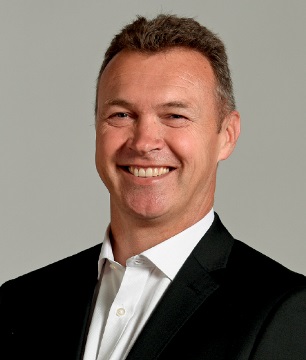We are members of the Vulintaba Association, a group of lifestyle financial planners all of whom are CFP® Professionals. We work together to see how we can serve our clients by doing financial planning better and also how we can run world-class businesses. Before lockdown, a number of us were debating the concept of financial emigration.
If you are reading this publication you are in the financial services industry, but let me be clear from the outset: we at Veritas Wealth believe that the financial planning process comes first, and then when this planning process is finished, and then and only then, we look to implement the plan and use financial products. This distinction is critical because financial emigration is the implementation of a financial plan. If you just jump straight to financial emigration, you are, as they say, putting the cart before the horse.
The genesis of financial emigration is based on fear. As financial planners, our job is not to decide how or where people should live. Our skill is to show them the consequences of the lifestyle decisions that they have come to discuss with you, their trusted advisor. All our advisors recently completed a behavioural coaching programme. During the course, one starts to pick up that as financial planners we all enter conversations with clients with our personal biases and blinds spots. It is critical to recognise these and also to try to keep them, as best as possible, out of the conversation.
Never forget, the meeting is about the client, not about you and your opinions. Our job is to help the client unpack the issue of financial emigration for them and from a family perspective. Our skill and value add is in the questions we ask rather than in the answers we give. Our clients have the answers themselves; we can only show them the likely consequences of the decisions they make.
Currently, many South Africans are losing faith in the government and the country. There is a real sense of fear but, interestingly, many clients have no intention of leaving, either because they cannot afford to leave or they realise this is a wonderful place to live.
RULE 1 | Fear sells
If you want to sell a product or an idea, then fear is a powerful tool. If you want people to take money offshore so that you can earn offshore income, then hit the fear button. It will sell the product or service very successfully. The media regularly use bad news and fear to capture our attention, so product houses and advisors are now too pushing this button more regularly.
The issue is that more clients are saying that they do not want to make contributions to retirement annuities (RA) this year. They also want to cash in on their pensions and take what they can offshore. Some even want to sell their homes. You hear the comments around the braai or at small gatherings. Prescribed assets, sovereign downgrades, tax morality and state capture add to the long list of other reasons to get your money out of here.
Your job as a planner is to slow this down and go through the numbers. Your client must understand the consequences. Also ask them, if they have considered the fact that they may be wrong.
RULE 2 | The power of compound interest
We assume you pay tax at 41% marginal rate. This was to February 2020. The money is invested in a RA pre-tax. When you retire, your tax rate is lower, probably 25- 30% marginal when you start drawing a pension. A common conversation is about getting as much money offshore as you can get your hands on. Should you contribute to your retirement fund? Here are the numbers:
| Do not use RA | Use RA | |
| Income earned pre-tax | R350 000 | R350 000 |
| Contribution to RA | R0 | R350 000 |
| Income tax payable 2020 @ 41% | (R143 500 | R0 |
| Amount available for investment | R206 500 | R350 000 |
So now you can take R206 500 (after-tax) directly offshore or R350 000 (pre-tax) into an RA. How long will it take to make back the 41% paid in tax?
The second scenario is to withdraw as much money as possible out of your retirement funds and take the proceeds out of South Africa as soon as possible. We will use the extreme example of a full withdrawal of a preservation provident fund. We will assume there is R10m invested in the fund. We have chosen this as you can access all the funds in this vehicle, which are then taxed according to the retirement withdrawal table.
| Preservation provident fund withdrawal (100%) |
| Capital withdrawal | Tax rate % | Tax paid | Capital withdrawn |
| R0–R25 000 0% | |||
| R25 001–R660 000 | 18% | ||
| R660 001–R990 000 | 27% | ||
| R990 001–R10 000 000 | 36% | ||
| Total | R3 447 000 | R6 553 000 |
In summary, you have to take a -34% loss to take retirement money offshore. This is equivalent to the bottom of the stock market crash in 2008 or March 2020. Now here is the point. Assume you are invested in a run of the mill balanced fund. Every manager in the country has already taken 30% directly offshore. Conservatively, they are invested in large rand hedge stocks that do not count towards the 30% offshore allowance (Naspers, Richemont, all commodities stocks, BAT, etc). You could assume there is another 20% invested in these types of shares, granted to varying degrees of success.
If this is true you could have had 50% (R5m) in your RA or preservation fund offshore already. You would have had another R5m exposed to South Africa and, yes, potentially to prescribed assets.
RULE 3 | You should also learn from history
Your client will have achieved your goal of getting the money offshore, but hold on, could they be running into other trouble?
You might remember 2001 when Thabo Mbeki was president. He thought that some players in the ANC were plotting against him, and there was a run on the rand. It was a scary time to be in South Africa. The rand went to R13.53/USD. The brightest business people bonded their big houses to the hilt and took the money offshore. Phew, you are safe now. Or are you?
RULE 4 | Never sell at the bottom
From that point they bought into offshore equity, primarily US equity (S&P Index: 1140), and then, surprisingly out of nowhere, the rand strengthened (December 2002 – R8.58/USD), the offshore equity cycle turned and the dollar prices collapsed (December 2002 – S&P Index: 899). It took around nine years for the S&P to recover these losses. It took the rand 14 years (September 2015) for this market to recover to the same dollar basis. The rand also strengthened to R5.68 in December 2004 (a 42% loss in currency and a stock market loss in dollars of -4%). Just to rub more salt in the wounds, interest rates on home loans were at 15% at the time.
The question to ask currently is: are global equity prices presently quite high? Are global bond markets overpriced? Is the dollar very strong against most currencies? Most commentators believe all of these to be so. Is history about to repeat itself?

RULE 5 | You never know what is going to happen
This article does not suggest that you should invest all of your clients’ money in South Africa. It is not saying that you should invest all their assets in South Africa. It is not saying that South Africa, as a country, is a certainty to bounce back.
What we are saying is that if you as a financial planner get caught up in the fear of the moment and are listening to the herd, then the numbers show that you better get this one absolutely right! You have created a stock market crash in your clients’ retirement savings that you will never ever recover from, unless, of course, South Africa is doomed forever.
Wisdom in financial advice
If your client wants to live in South Africa and/or has very little chance to be able to afford to move overseas, then we think that you should approach this with a solid framework. As a CFP® Professional, you need to find out how much capital the client will need in his or her retirement funds to afford their lifestyle. (Remember these funds will have 30-50% in offshore assets.) You want to make sure your client will be able to meet their liabilities in South Africa and to do this you as the advisor need to have assets facing this economy.
When giving advice to clients we have found that it is not about binary moves (eg choosing between leaving or staying) it is about knowing you don’t know and then leaning into a move rather than jumping completely. Once you know the client has enough assets in South Africa, then build up any surplus savings in offshore assets slowly over time, whether feeder funds or directly offshore.
Get the call right!

Although a terrible idea, we don’t think prescribed assets can lose as much as a permanent 35% now in cashing out or not contributing to a retirement fund. After watching the news about state capture and mismanagement of state enterprises it feels like you need to take swift action as some people suggest.
But you don’t necessarily have to make big calls. You might just need to adjust your tactics, knowing full well that you do not know what is about to happen.
It is important to first unpack what the client is feeling and wants to achieve. Your job as a professional is to try to take the fear away for a while. Put a decision-making process in place and then make the incremental adjustments needed. Don’t concentrate on the right call, rather focus on the best call.












